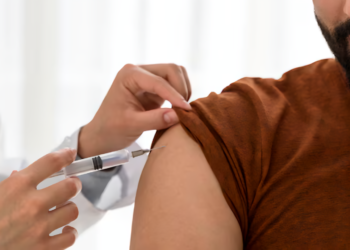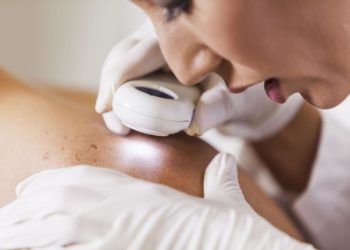Acne scars can be one of the most persistent reminders of past skin struggles. Whether you’re dealing with dark spots, pitted scars, or texture irregularities, the marks left behind by acne can affect your skin’s appearance and, in some cases, confidence. However, with advancements in acne scar treatment, achieving smooth, radiant skin is more attainable than ever.
In this post, we’ll explore the best acne scar treatments available today, highlighting professional and at-home options that can help restore a natural, healthy glow.
Understanding Acne Scars
Acne scars form when the skin is damaged during an acne breakout. The skin’s healing process may leave behind visible marks in various forms, including:
- Hyperpigmentation: Dark spots or patches that appear after acne lesions have healed.
- Atrophic Scars: Depressed scars occur when the skin doesn’t produce enough collagen during healing. These can include ice pick, boxcar, and rolling scars.
- Hypertrophic Scars: Raised, thick scars that form when the skin overproduces collagen during healing.
The type of acne scars you have will often determine the most effective treatment method. Fortunately, numerous treatments can help reduce the appearance of scars and restore your skin’s natural texture.
Professional Acne Scar Treatments
A professional acne scar treatment can offer significant improvements for those seeking faster and more targeted results. These treatments are typically administered by dermatologists or licensed skincare specialists and are designed to tackle more severe or persistent scars.
Laser Therapy
Laser treatments have become one of the most popular and effective treatments for acne scars. There are two primary types of laser therapy used for acne scars:
- Fractional CO2 Laser: This treatment uses laser energy to target the deeper layers of skin, stimulating collagen production and promoting the skin’s natural healing process. It works well for both atrophic (depressed) and hyperpigmented scars, offering a smoother texture over time.
- Erbium YAG Laser: This laser is gentler and targets the skin’s surface layers, making it suitable for treating mild to moderate scars. It is often used to reduce the appearance of pigmentation and improve skin tone.
Laser treatments typically require several sessions, and recovery times can vary. However, they are highly effective in resurfacing the skin and providing long-lasting results.
Microneedling
Microneedling, or collagen induction therapy, involves using fine needles to create tiny punctures in the skin. This process stimulates the body’s natural collagen production, helping to fill in depressed scars and improve skin texture. Over time, microneedling can significantly reduce the appearance of acne scars, especially when combined with other treatments like PRP (platelet-rich plasma) therapy.
This minimally invasive treatment generally involves a short recovery time, making it an appealing option for many people. For safe, professional results, consider the Best Med Spa in Tinley Park or other trusted locations, where experts customize the procedure to meet your unique skin needs.
Chemical Peels
Chemical peels involve the application of a chemical solution to the skin that causes the outer layers to exfoliate and eventually peel off. This process helps to improve skin texture, reduce hyperpigmentation, and even out skin tone. While chemical peels can effectively treat mild scars and pigmentation, stronger peels may be required for more severe scarring.
Peels have different strengths, with superficial peels requiring little to no downtime, while deeper peels may require a longer recovery.
Dermal Fillers
For individuals with deeper atrophic scars, dermal fillers can temporarily add volume to the skin. By injecting hyaluronic acid or collagen into the scar tissue, fillers can help raise the depressed areas, making the skin appear smoother. While results are temporary, fillers can be a good option for those looking for immediate improvements.
At-Home Acne Scar Treatments
If you’re looking for a more affordable or convenient option, several at-home acne scar treatments can help improve skin appearance over time. While they may take longer to show results than professional treatments, many of these options can still be effective with consistent use.
Topical Retinoids
Retinoids, including retinol and tretinoin, are some of the most well-known and effective treatments for acne scars. They work by speeding up cell turnover, encouraging the shedding of dead skin cells and the growth of new skin. Retinoids can improve skin texture, reduce hyperpigmentation, and promote collagen production.
Retinoids should be applied at night for best results, as they can make the skin more sensitive to sunlight. It’s important to start with a lower strength and gradually increase the potency to avoid irritation.
Vitamin C Serums
Vitamin C is a powerful antioxidant that can help brighten the skin and reduce the appearance of dark spots and hyperpigmentation. Vitamin C serums can improve skin tone, lighten post-acne marks, and promote overall skin health when used regularly. Choosing a stable form of vitamin C, such as ascorbic acid, is important to ensure its effectiveness.
Vitamin C is also helpful in stimulating collagen production, which can improve skin texture and help fade acne scars over time.
Exfoliating Products
Exfoliation is crucial in acne scar treatment by removing dead skin cells and promoting skin regeneration. Alpha hydroxy acids (AHAs) and beta hydroxy acids (BHAs) are commonly found in exfoliating products and can be particularly helpful for individuals with acne scars.
Like glycolic acid, AHAs work on the skin’s surface to improve texture and reduce pigmentation. BHAs, like salicylic acid, penetrate deeper into the pores and can help with clogged pores and inflammation. When done properly, regular exfoliation can help fade scars and promote smoother skin.
Natural Oils
For those who prefer natural treatments, oils like rosehip, tea tree, and jojoba oil have been praised for their skin-healing properties. Rosehip oil, in particular, is known for its ability to promote skin regeneration and reduce the appearance of scars due to its high vitamin A and fatty acid content. While results may be slower than other treatments, natural oils can be a gentle option for those looking to improve their skin’s appearance without harsh chemicals.
Maintaining Healthy Skin After Treatment
After undergoing acne scar treatments, it’s crucial to maintain a healthy skincare routine to prevent new breakouts and ensure long-lasting results. Here are some tips to keep your skin healthy and radiant:
- Wear Sunscreen: Sunscreen prevents further hyperpigmentation and protects healing skin. Always apply broad-spectrum sunscreen with SPF 30 or higher, especially after treatments like chemical peels or microneedling.
- Moisturise Regularly: Hydrated skin is key to healing, so use a moisturiser that suits your skin type. Look for one that is gentle, non-comedogenic, and packed with hydrating ingredients like hyaluronic acid or ceramides.
- Avoid Picking at Scars: Picking or squeezing acne scars can cause further damage to the skin, leading to more scarring. Be gentle with your skin and allow treatments to work their magic.
Achieving clear, smooth skin after acne can be challenging, but the right treatment can fade scars and restore your skin’s natural radiance. Whether you opt for professional treatments like laser therapy or microneedling, or prefer at-home options like retinoids and vitamin C serums, consistency is key to seeing improvements.
By choosing the right acne scar treatment and following a healthy skincare routine, you can enjoy smoother, more radiant skin and boost your confidence for years.
David Prior
David Prior is the editor of Today News, responsible for the overall editorial strategy. He is an NCTJ-qualified journalist with over 20 years’ experience, and is also editor of the award-winning hyperlocal news title Altrincham Today. His LinkedIn profile is here.




![7 Best POS Software in the UK [2026 Edition]](https://todaynews.co.uk/wp-content/uploads/2026/02/7-Best-POS-Software-in-the-UK-2026-Edition-360x180.png)








































































